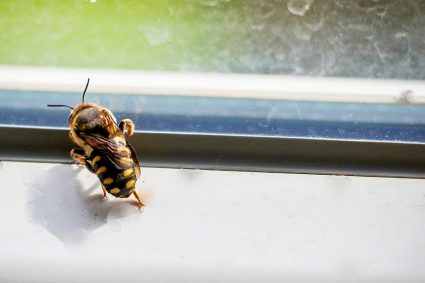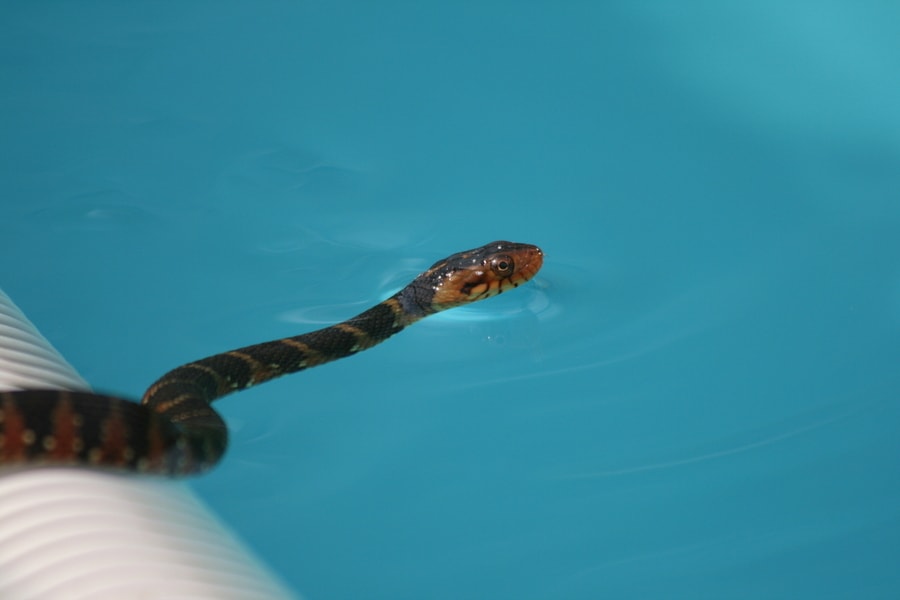
If there’s one thing that can ruin a summer day, it’s finding a snake in your swimming pool. While they may seem harmless creatures, they can be dangerous if provoked. So, how do you keep snakes out of your swimming pool?
The first step is to ensure that there are no potential food sources for snakes near your pool.
In addition to this, you can do a couple of more things to keep these slithering creatures out of your swimming hole:
- Keep your grass trimmed and remove any stray rodents or insects
- Seal any cracks or holes in your pool deck
- Install a snake-proof fence around your swimming area
These steps will protect against pesky pests and give you peace of mind while you enjoy quality time in the pool.
This blog post will outline the best ways to keep those pesky snakes from creeping into your pool this summer. So read on and learn how to keep snakes out of swimming pools once and for all!
11 Reasons Why Snakes Get Into Your Swimming Pool
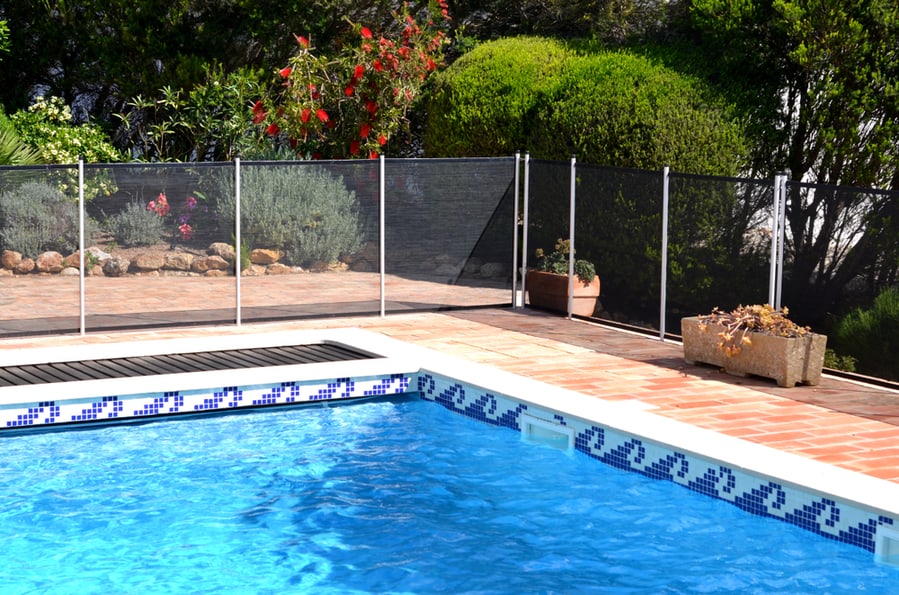
There are several reasons why snakes might want to take a dip in your swimming pool, but here are the most common ones:
- It’s Hot – Snakes might try to run away from the scorching heat and take a dip into your swimming pool to regulate their body temperature. So, snakes may enter through tiny cracks or holes in the fence or wall to get into the cold pool.
- They’re Hungry – If there are creatures living in or around your pool, chances are a snake will be interested in catching and eating them. Common prey items include frogs, lizards, mice, and birds.
- They’re Thirsty – A Snake needs to drink water like any other creature, and your swimming pool is easy for them to get a drink.
- Their Home Is Flooded – If heavy rains or other flooding has occurred, snakes may be driven out of their natural habitat and end up in your swimming pool.
- They’re Looking for a Mate – During the breeding season, snakes travel long distances searching for a mate. If your pool is in their path, they may stop to check it out.
- They’re Being Forced Out – Predators, such as birds of prey, can spot a snake from above and sometimes drive them out of hiding places and into areas where it can be easily seen and captured.
- They’ve Fallen In – If a snake is climbing on something near the pool and loses its grip, it may fall into the water.
- They Smell Something Interesting – Snakes have a keen sense of smell and may be attracted to your pool if something in the water smells interesting to them. This could be anything from food to other animals.
- They Hear Something – Snakes can hear sounds underwater and may be drawn to your pool if they hear something that interests them.
- They Feel Vibrations – Snakes can sense vibrations in the ground and may be attracted to your pool if they feel vibrations coming from it.
- They See Something Moving – If something is moving in or around your pool, a snake may be drawn to it out of curiosity.
Tips To Keep Snakes Away From Pool Area
If you want to keep snakes away from your pool area, here are a few tips that can help:
1. Keep Your Yard Clean
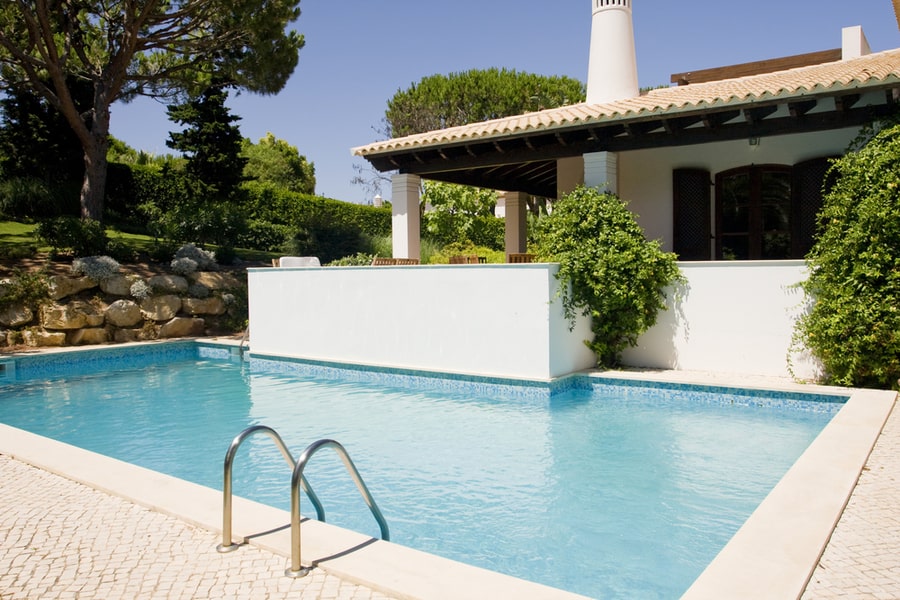
In addition to keeping the area around your pool clean, it’s also important to keep your entire yard clean. This means removing potential hiding places for snakes, such as piles of leaves or wood.
As a result, mice, frogs, and other prey will stay away from the yard, so there will be no attraction for snakes to get near your yard or pool.
2. Grow Strong Scented Plants

If you’re looking for a natural way to keep snakes away from your pool area, there are a few plants you can grow that will do the trick.
Garlic, lemongrass, onions, and cinnamon plants have strong scents that snakes don’t like. Viper’s bowstring hemp is also known to repel snakes.
And finally, marigolds are often used in natural pest control solutions because of their ability to avert pests of all kinds.
Snakes are attracted to cool and damp areas, so planting these plants around your pool can help eliminate them.
3. Repair Any Cracks in the fence
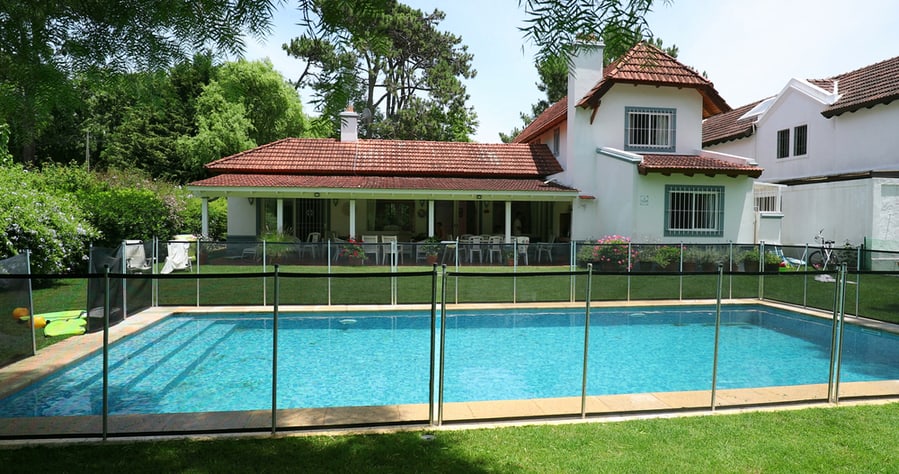
If there are any gaps in the fencing, snakes will be able to slither through and get into the pool area.
Ensure that the fence is in good repair and that there are no gaps a snake could squeeze through.
To repair any holes or cracks in your fence, you will need the following materials:
- 1/4 inch hardware cloth
- Staples
- Wire cutters
First, use the wire cutters to cut a piece of hardware cloth slightly larger than the hole or crack. Then, place the hardware cloth over the hole or crack and secure it with staples.
Be sure to overlap the hole’s edges or crack by at least an inch.
Finally, trim any excess hardware cloth with the wire cutters.
4. Use Pool Covers
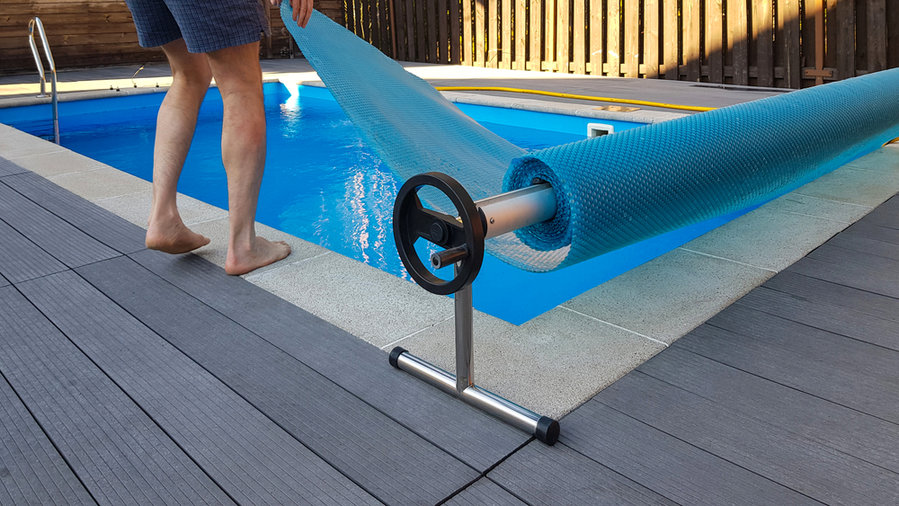
If you have a pool, one of the best ways to keep snakes away is to use a cover when it’s not in use.
This will prevent them from being able to get into the water and will also make it more difficult for them to hide.
5. Use Snake Repellents
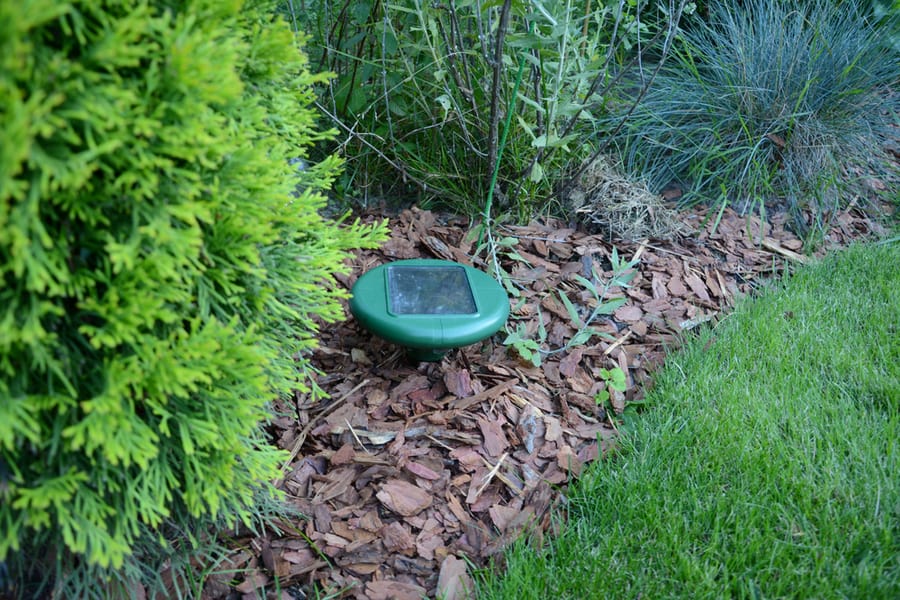
Another option for keeping snakes away from your pool area is to use snake repellents.
Different types of snake repellents are available in the market, but you can also make them at home to spray around the perimeter of your property.
All you need is a spray bottle, water, and essential oils. Mix 20 drops of any essential oil with water in the spray bottle and use it to repel snakes around your pool.
Some of the effective essential oils for this purpose are basil, peppermint, clove, and cinnamon. You can also use a combination of these oils.
6. Install a Motion-Activated Sprinkler System
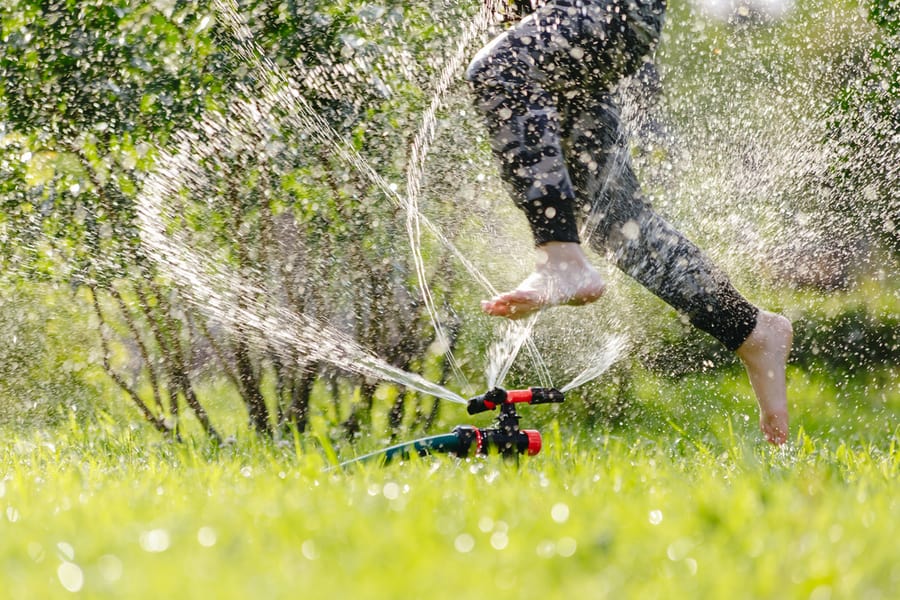
While there is no guaranteed way to keep snakes away from your pool, installing a motion-activated sprinkler system can help.
These systems work by spraying water when they detect movement in the area. This will startle any snakes that are nearby and cause them to flee.
It’s important to note that not all motion-activated sprinkler systems are created equal, so make sure to choose one specifically designed to deter snakes.
7. Install a New Fence
There are a few different types of pool fences that will work perfectly to keep snakes out. Let’s check a few of them!
Mesh Fences
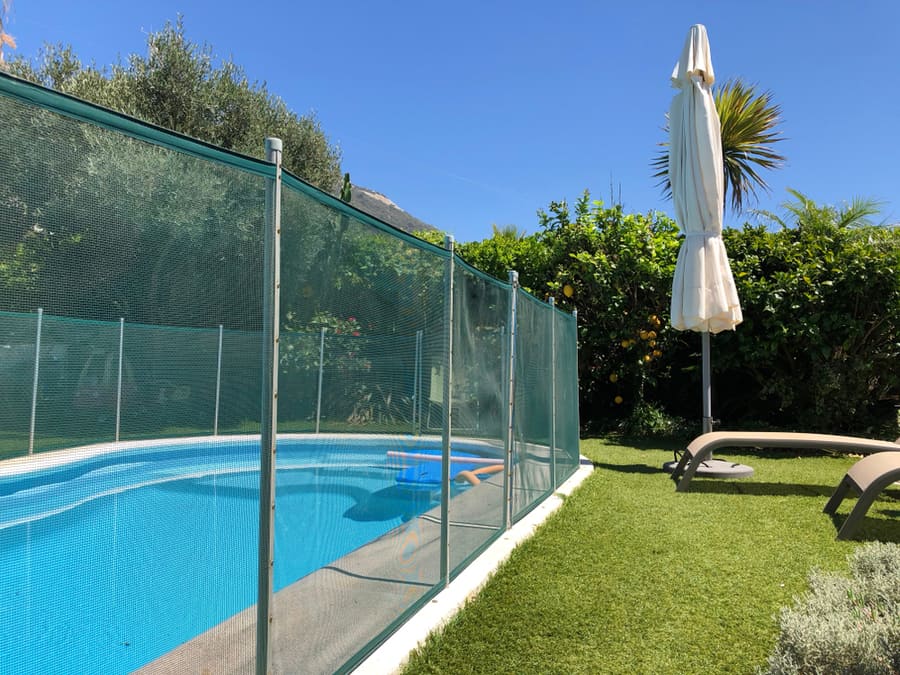
Some people prefer to use mesh fences, which are made of thin metal wires woven together. The fence creates a barrier that the snakes cannot cross, preventing them from getting into your yard and potentially harming you or your family.
Mesh fences also allow air and light to pass through, so you don’t have to worry about being in the dark or feeling closed in.
These fences are relatively easy to install and can be pretty affordable. However, they may not be the best option for homes with children, as the wires could cause injuries if a child falls against them.
Vinyl Fence
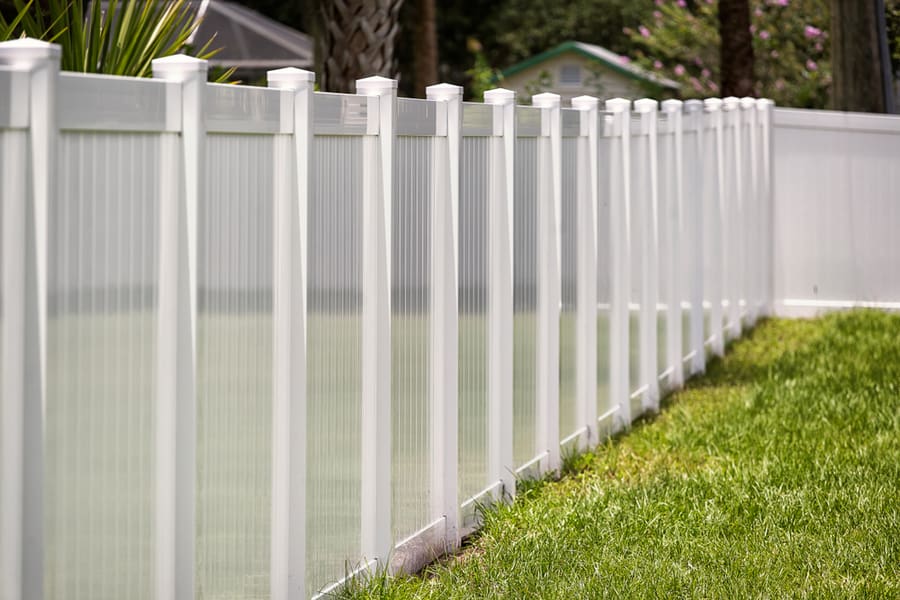
Another option is a vinyl fence. These fences are made from sturdy plastic and can be quite expensive, but they last for many years and are virtually maintenance-free.
Vinyl fences are an excellent way to keep snakes out of your pool, as the snakes cannot climb fences if a vinyl fence surrounds it.
In addition, vinyl fences are solid and durable, so they can withstand the force of a snake trying to get through them.
They are also safe for children, as they will not injure them if they fall against them.
Wooden Fence
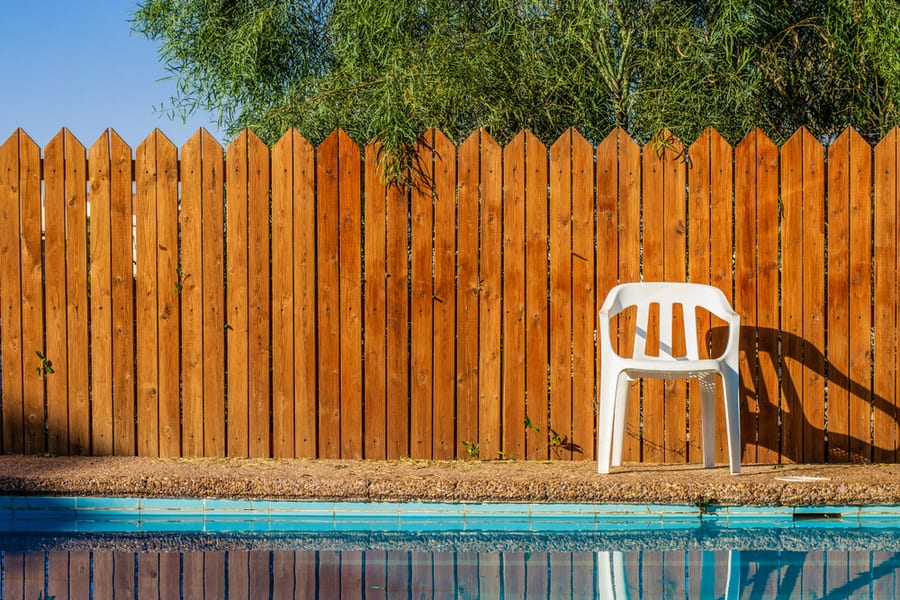
Finally, some people choose to use wooden fences around their pools.
These fences are typically the most expensive option, but they can be quite beautiful and add a touch of rustic charm to any backyard.
They are also very sturdy and safe for children to play around.
How To Get Snake Out of Your Swimming Pool?
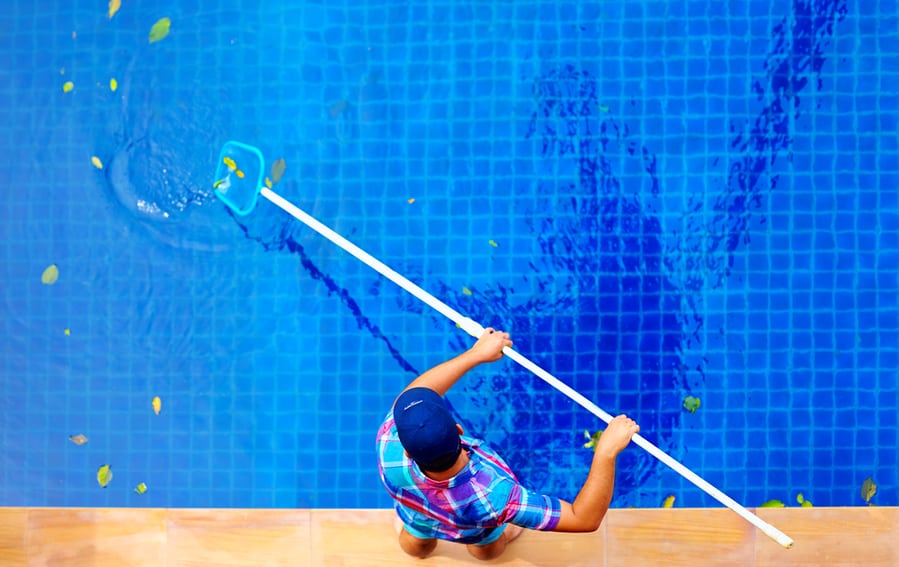
If a snake still gets into your pool, there are many ways to get it out.
The first step is to remove the skimmer basket. This will give you access to the drain and safely remove the snake. Once the skimmer basket is removed, you can use a net or a hook to remove the snake from the water.
Moreover, you can try to catch it with a net, scoop it out with a bucket, or vacuum it up with a pool cleaner. Another way is to use a hose to force the snake out of the water.
Finally, you can use a stick to prod the snake out of the water.
If you don’t feel comfortable doing this yourself, you can always call a professional for assistance. A professional can safely and quickly remove the snake from your pool.
Conclusion
So, there you have it! To keep snakes out of your swimming pool, avoid having a lot of available food near the pool, have a fence or pool cover, and use snake repellent.
If you follow these steps, you should be able to protect yourself and your guests from any unwanted surprises in the form of snakes the next time you enjoy the pool.
And if none of these methods work for you, remember that you can always call in a professional to get the job done right. After all, it’s better to be safe than sorry when dealing with snakes!
Frequently Asked Questions
What Is the Best Homemade Snake Repellent?
An effective natural snake repellent is made with garlic and onion, as snakes dislike these two ingredients.
To make it, combine 4 cloves of garlic, 4 cups of water, ½ onion, and 1 tablespoon salt. Mix well and spray around the perimeter of your home or property. Reapply as needed, especially after heavy rains.
Do Above-Ground Pools Attract Snakes?
There is no definitive answer to this question, as snakes are drawn to different habitats.
However, it is generally accepted that snakes are more likely to be found near water, whether that is a river, stream, or pond, and that includes above-ground pools. This is because they provide a perfect place for the reptiles to soak up some heat and help them navigate the dark.
Do Snakes Like Saltwater Pools?
It comes out that some snakes are attracted to salt water and actively seek it out. This could potentially be a problem if you have a pool, as there is always the possibility that a snake could end up in there accidentally.



